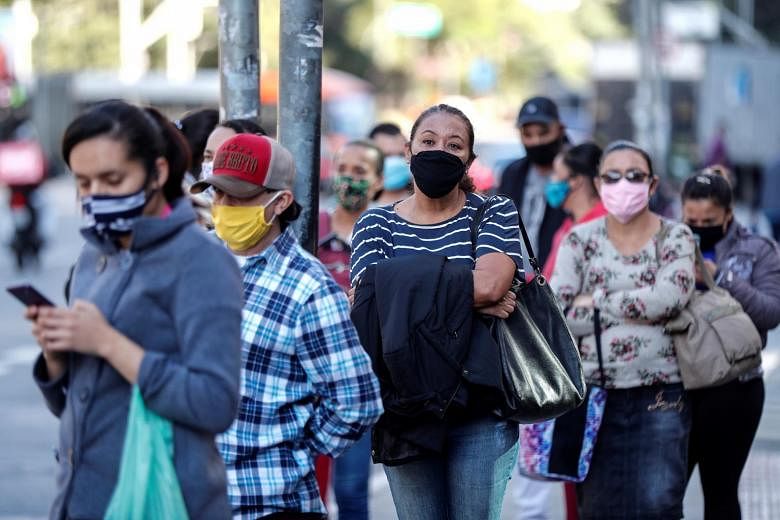SÃO PAULO (BLOOMBERG) - Sao Paulo, the largest city in South America and home to Brazil's financial hub, will allow shops and malls to resume activities as it begins to reopen businesses after about two months of loosely enforced quarantine orders, despite a record number of new Covid-19 cases reported Thursday (May 28) in Brazil.
The plan was announced by Mayor Bruno Covas on Thursday, a day after the state's government announced guidelines for cities to reopen. The restart comes even as numbers continue to show the state as the hardest-hit by the Covid-19 pandemic, with about 20 per cent of the infections reported in the country. The country reported 26,417 new cases Thursday; 6,382 of those were in Sao Paulo state.
The state government divided the region into roughly 20 so-called health areas and assigned grades to each ranging from one and five - level one signifying the need for the tighest restrictions, and level five the least. The criteria used included occupation of ICU beds in percentage terms and per 100,000 inhabitants, number of cases, hospitalisations and deaths by Covid-19. Cities can progress through the stages if the indicators hold for two weeks.
Sao Paulo is on level two, which allows offices, shops, malls, car dealerships and real estate to resume activities by June 1st with some restrictions. According to Covas, the city has met all the state's criteria to move forward on relaxing restrictions. He also said that city hall is adding 1,550 ICU beds, which will help relieve the pressure on city hospital ICU units, now operating at more than 90 per cent capacity.
Covas warned that the reopening will only come after protocols on cleaning and testing have been established by the local health sanitation agency. City Hall will begin receiving the details, which should also include rules for inspection and communication of the measures, from sector associations and entities on Monday, he said.
"If the numbers worsen, we can go back to phase one," Covas said in a press conference.
Sao Paulo has been the epicentre of Brazil's coronavirus pandemic, home to the first infection reported in the region and one of the first local governments to announce restrictive measures. The state accounted for almost 70 per cent of cases in the country in mid-March, and 70 per cent of deaths in early April. Now it has about 95,000 cases, but says without social isolation measures the number would be 950,000. Brazil currently has 411,821 cases, and about 26,000 deaths.
The mega-city had been facing growing pressure to allow businesses to reopen as two months of loosely enforced quarantines take a toll on the economy. Support for social isolation measures had been falling, as had compliance with the restrictions - geolocation data gathered by the government showed less than 50 per cent of people were staying home, with the number only rising past that on weekends. Attempts to restrict car circulation and a last-minute, six day holiday backfired, having little impact and causing backlash.
Brazil's scatter-shot response to the pandemic has complicated efforts to fight the disease, making the country a hotspot for the virus, second only to the US in number of cases. Restricted at first to rich neighbourhoods and capitals in close contact with international travellers, the virus has migrated to poorer regions and also inland. A report by UBS published on Wednesday said that six of Brazil's 27 states are peaking, while total deaths are increasing in 21 states.
Covas said the virus's reproduction rate - the "R" number critical to the spread of infection - is at 1 in the capital city, versus 1.7 for the state's countryside. There are only four areas across the state of Sao Paulo that are on phase three, which allows beauty salons, barbershops, bars and restaurants to resume operations, and none on phases four or five of the plan, which furthers loosens restrictions. The state, which is home to some 46 million people, accounts for about a third of the Brazilian economy.











